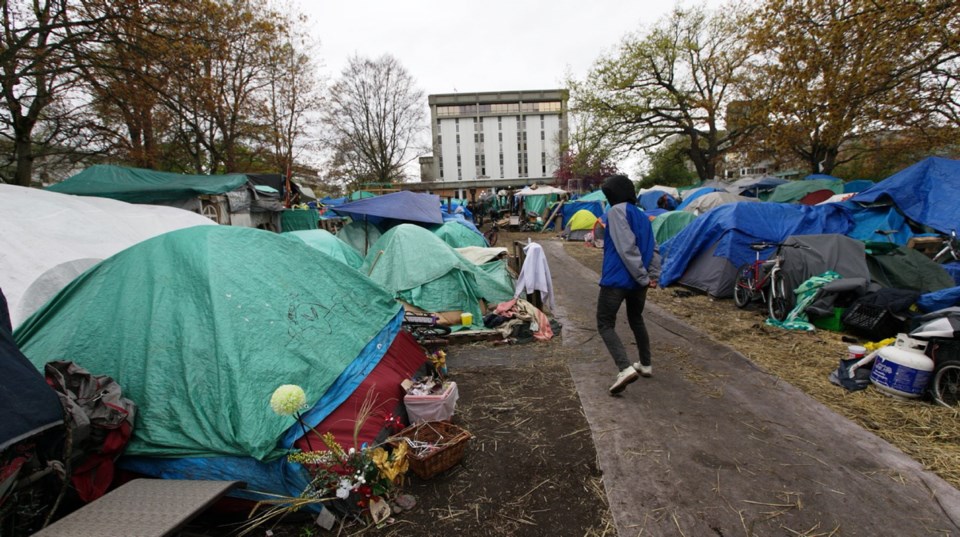One of the biggest impacts of Victoria’s tent city to the community was its divisiveness, Mayor Lisa Helps told municipal officials Monday.
“There were people for tent city and people against tent city. There were people for homeless people and people against homeless people,” Helps told a Union of B.C. Municipalities convention study session at the Victoria Conference Centre Monday.
“Really, one of the most distressing emails I got over the course of the tent city was someone who wrote and said something like this: ‘I used to feel compassion for homeless people, but now I don’t and it’s all your fault,’ ” Helps said.
Neighbourhood concerns have to be taken seriously as local officials wrestle with the difficult decisions surrounding homelessness, including finding locations for social housing, Helps said.
“It’s hard. It’s very hard.”
Helps spoke of issues faced by Christ Church Cathedral School, an elementary and middle school that was across the street from the now-dismantled tent city located on the provincial court house property. As part of the process to end tent city, the province bought Mount Edwards Court, which is only steps away from the school, for low-barrier transitional housing. That was met by even more concerns.
“The parents have legitimate concerns. Their fears and their worries are real. They’ve seen challenges and they want their kids to be safe and also we want people to be inside and safe,” Helps said.
“A tip if you want one in dealing with these kinds of issues, is to take very seriously the worries and concerns and fears of residents. I find that calling people NIMBY [Not In My Back Yard] isn’t very helpful,” Helps said.
She said a better approach is to sit down and listen to neighbours and then work with the shelter service provider to design an operating model that takes into account both the concerns of the neighbours as well as the needs of the residents.
The costs of homelessness are high, Helps said. City costs were $1.2 million in 2015 and $1.6 million so far in 2016, pushed up by the tent city.
“Homelessness is expensive. Not only are tent cities expensive, but having people camping in parks is expensive, not only in terms of dollars spent by local government, but in terms of the human condition of people who are unfortunate enough in such a prosperous country as Canada and a province such as British Columbia to wake up in a park every morning,” Helps said.
“The costs of that are incalculable.”
As the courts have ruled it unconstitutional to deny a person the right to erect shelter in the absence of shelter beds, the city has amended its parks bylaw to permit tents in parks between dusk and dawn.
The city conducts wakeups every morning beginning at 7 a.m. in city parks rousting homeless campers. It’s something Helps called stressful for all involved.
“It’s very stressful for everyone. It’s stressful for our bylaw officers and our police officers who need to go around every morning and wake people up. It’s very stressful for the people who are sleeping outside because they have no other choice and who are woken up by our bylaw officers and our police officers.”
Asked by a member of the audience if a municipality could prohibit camping in parks once sufficient shelter beds are made available, panel member and lawyer James Yardley, said: “It’s a challenging part of the law.”
Yardley noted that there are some people, especially those with mental-health and or addiction issues, who simply don’t want to go into a shelter.
“It’s a difficult area to nail down in a way that satisfies the courts.”
> Federal government offers “microgrants,” A5



